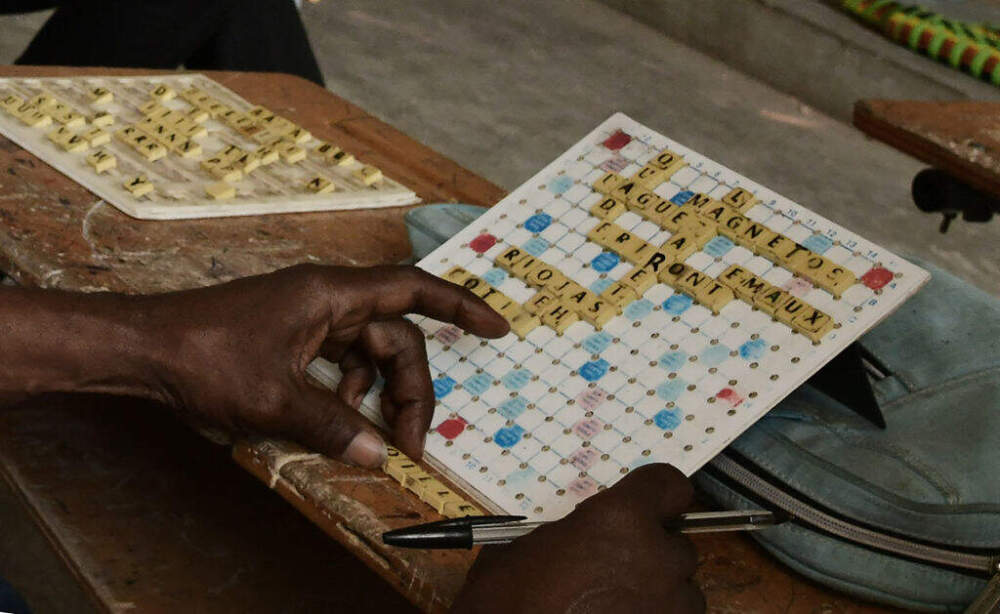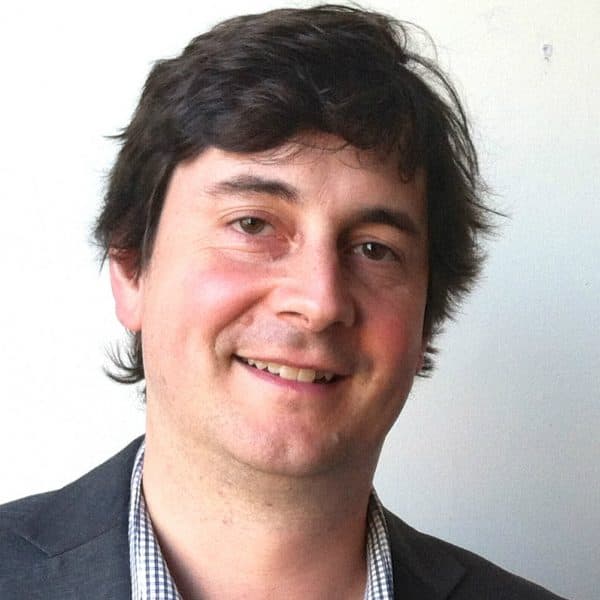Advertisement
Commentary
My time with the Scrabble kings of Liberia

Many of us know about refugees’ entrepreneurial spirit and the economic vitality they bring to communities where they resettle. But there’s another aspect of long-term exile that is less known — the creative dimension. In my work I’ve met chess wizards, extraordinary artists and heard of a Shakespeare aficionado who performed all the parts in entire plays.
But the most unusual and surprising creative pursuit I witnessed firsthand was among Liberian refugees in Ivory Coast. I first saw it more than two decades ago in the market town of Danané, treacherously near the border with Liberia, where a civil war that began in 1989 still raged. Many Liberians were forced into neighboring countries like Ivory Coast where some stayed for nearly 15 years.
I was there as a cultural orientation teacher because the American government had approved 1,000 or so Liberian refugees for resettlement to the U.S. The night before my classes began, I was eager to check out an expert group of Liberian Scrabble players I had heard about.
Scrabble was already a popular game in Liberia before the war. With more time on their hands in [a refugee camp in] Danané, Scrabble quickly became the refugees’ favorite activity.
When I asked around, I was pointed toward a cluster of small brick huts. I had no idea that I was about to enter the exotic universe of the Liberian Scrabble Kings.
It was nighttime and pitch black in a way that only places with sporadic electricity can be. But the courtyard in front was lighted dimly by a string of low-watt bulbs hung over a collection of little tables. As I approached, I could see that several games were underway and a circle of spectators watched.
When I asked someone if I could get a game, a small table and an opponent instantly appeared. The introduction was brief. I caught his name — Sayun, I’ll call him — but I barely got a look at his face before he hunkered down and began scrutinizing the empty Scrabble board that had suddenly materialized on the table.
We took our letters. I looked mine over for a bit, saw a good possibility and laid down my tiles, thinking that things were starting off well. But Sayun played his tiles only a few seconds later, as if he had had prophetic foresight into what I was going to do, and how he could instantly take advantage of it.
I looked at my own tiles and the board again, and settled down for a serious, unhurried game — the kind I was used to. But suddenly my thoughts were interrupted. "You have to play," said Sayun, who was now staring, not at the board, but at me. A bit flustered, I played a word, probably not my best option. He was in a rush, though I was unsure why. Ten seconds later Sayun played again and immediately looked back at me. I quickly found myself locked in the most intense take-no-prisoners Scrabble game of my life.
The next day I met Sayun again, in my first orientation class. His mother, brothers, sisters, and cousins were also in the class. Afterwards they invited me to the little cluster of one-room huts where they lived. As they gave me a tour of their quarters they told me their story — how they lost their father in the war and barely escaped with their lives.
Like many refugees adrift in the world today, Liberians in Danané at that time were not allowed to work, and for most there was no school. With nothing to do and no place to go, weeks, months and years merged. Time lost meaning.
To combat the boredom and to push away the nightmares, many refugees throw themselves into games and sports with an astonishing intensity. Scrabble was already a popular game in Liberia before the war. With more time on their hands in Danané, Scrabble quickly became the refugees’ favorite activity.
I later read Stefan Fatsis’ book "Word Freak," about the bizarre underworld of professional Scrabble. Fatsis describes the addiction and obsession that inspire the top professional players to grueling training and unbelievable play.
The Liberians in Danané seemed as obsessed as the world-class players Fatsis describes, perhaps more. The serious ones memorized the Official Scrabble Players Dictionary, reading through and making word lists day in and day out for weeks, months or even years. These adepts could not only tell you whether a particular word appeared in the dictionary, but on which page it could be found.
They created tournaments with scorekeepers, timekeepers, dictionary referees and player representatives who could double-check the ref's word verification. To make things even harder, they created additional rules: a 30-second time limit per play and no rearranging the tiles on your rack. The goals: Rearrange the tiles in your mind. Visualize all your options. Play fast.
To combat the boredom and to push away the nightmares, many refugees throw themselves into games and sports with an astonishing intensity.
A big Danané-wide tournament took place every six months, but the hype and pressure started far in advance. Players who couldn't afford the 80-cent entrance fee would try to borrow the money, but only if they thought they had a good chance of winning. Entrants received updated rules two weeks before the tournament. Flyers were posted across Danané. Bookies gave odds and took bets. Players secluded themselves for days before the tournament to study words non-stop. And when the big day arrived, huge crowds gathered to watch.
The winner received prize money and the coveted title of champion until the next tournament, which usually produced a new top player. But the champion was not by any means the best. The best were in another realm altogether. These luminaries were the Big Four, Danané’s “Scrabble kings.” This term referred to the four individuals who had simply gotten too good at the game. They could as easily have been called the Scrabble Gods. They knew every word in the dictionary and every trick possible. They counted tiles and calculated all the odds before any move, which they made in the blink of an eye. The four that I heard about had nicknames — Goliath, Taurus, Koto and Sweet — names spoken in reverential tones.
The Big Four organized the tournaments, but did not participate. Any given champion could play exhibition matches against one of the Big Four. In the unlikely event the champion won, he would usurp the loser's place in the circle of Scrabble royalty.
This was the world of Scrabble wizardry I had unwittingly stepped into that first night. Sayun was not one of the Big Four and he had never been a champion, but his play was astonishing. He scored high points with every play and I didn’t even know half the words he used, even though I had been playing the game since childhood. That first night, some other Liberians gathered around to watch our match. They could have saved themselves the trouble. It was the fastest Scrabble game I’ve ever played, and when it was over I had been destroyed 475 to 330.
Only once or twice had I ever seen anyone score as high as Sayun. And I can’t remember many games I’ve played where the collective score was more than 800. Maybe it was just a fluke, I thought at first. But in the next game he obliterated me with 450 points.
After the second game one of the spectators, a young man named John, asked if he could play me next. He scored 460 points. When I asked my opponents what their high scores were, both responded that they occasionally scored above 600.
It was midnight now and I took in the scene. There were 12 people still hanging around the little dirt courtyard. Someone was passing around a pot of curried rice that had just been cooked over a charcoal burner. Four people were sitting on a log nearby, chatting and laughing. I asked what they were talking about. "Life before the war," one of them said. "We always talk about life back in Liberia — before."
I was suddenly struck with a strange, privileged feeling, as if I were looking through a window into the heart of these refugees’ lives. Everyone seemed in tune with their surroundings, as if this were home. But it was an illusion. No one there considered Danané home. This place was a transit point to somewhere better, to any place where real life could start again. Danané was a limbo, where the endless march of days was filled with worry and ghosts from the past that haunted their dreams and their waking hours.
Some time after my orientation classes were finished and I had gone on to other places, Sayun and his family resettled to the U.S. Other Liberians eventually went to other countries, but the games kept going among the thousands still stuck in refugee life.
Today Liberia has enjoyed nearly two decades of relative peace and stability. But throughout the world, many refugees are stuck for 20 years or longer in circumstances not dissimilar to that of the Scrabble players of Danané. In remote corners of the world these interminable situations create conditions in which extraordinary things take place. I often wonder what other astonishing talents are being honed out there.
